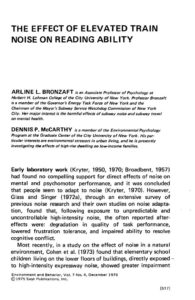Poor classroom acoustics: The invisible reason Johnny can’t read. Poor classroom acoustics create a negative learning environment for many students, especially those with hearing or learning difficulties. According to a report by David Lubman (“America’s Need for Standards and Guidelines to Ensure Satisfactory Classroom Acoustics”) “acoustical conditions in many classrooms are unsuitable for such tasks
Treat air quality to safeguard buildings against COVID-19
By Gus Simonds Special to The Times Enough sweatpants and Zoom meetings already. Employees who have worked from home since March because of COVID-19 want to get back to the office to enjoy the face-to-face camaraderie and collaboration with mentors and teammates. Parents are anticipating getting their children back into the classroom. Winter is approaching, making
Please Get Your Noise Out of My Ears
Air filters, Pollution and Student Achievement
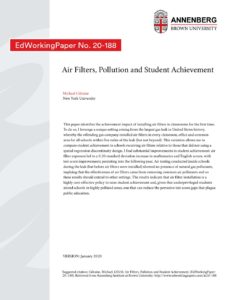 Michael Gilrane, New York University. This paper identifies the achievement impact of installing air filters in classrooms for the first time....
Michael Gilrane, New York University. This paper identifies the achievement impact of installing air filters in classrooms for the first time....
Installing air filters in classrooms has surprisingly large educational benefits
$1,000 can raise a class’s test scores by as much as cutting class size by a third. By Matthew Yglesias@mattyglesiasmatt@vox.com An emergency situation that turned out to be mostly a false alarm led a lot of schools in Los Angeles to install air filters, and something strange happened: Test scores went up. By a
A prospective study of some effects of aircraft noise on cognitive performance in schoolchildren
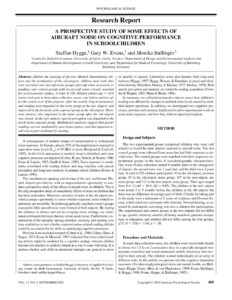
Chronic Noise Exposure and Reading Deficits Cornell May 1997
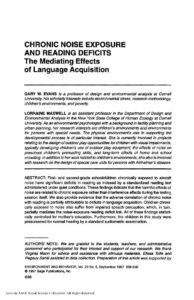 ABSTRACT: First- and second-grade schoolchildren chronically exposed to aircraft noise have significant deficits in reading as indexed by a standardized reading test administered under ...
ABSTRACT: First- and second-grade schoolchildren chronically exposed to aircraft noise have significant deficits in reading as indexed by a standardized reading test administered under ...
Kids near airports don’t read as well because they tune out speech, Cornell study finds
Children in schools bombarded by frequent aircraft noise don’t learn to read as well as children in quiet schools, Cornell University researchers have confirmed. And they have discovered one major reason: kids tune out speech in the racket. “We’ve known for a long time that chronic noise is having a devastating effect on the academic
Neighborhood Impact Matrices of proposed Third Runway Raytheon-Thomas/Lane (1996)
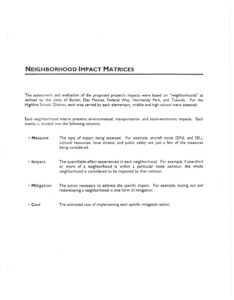
The Effect of Elevated Train Noise On Reading Ability
Posted on